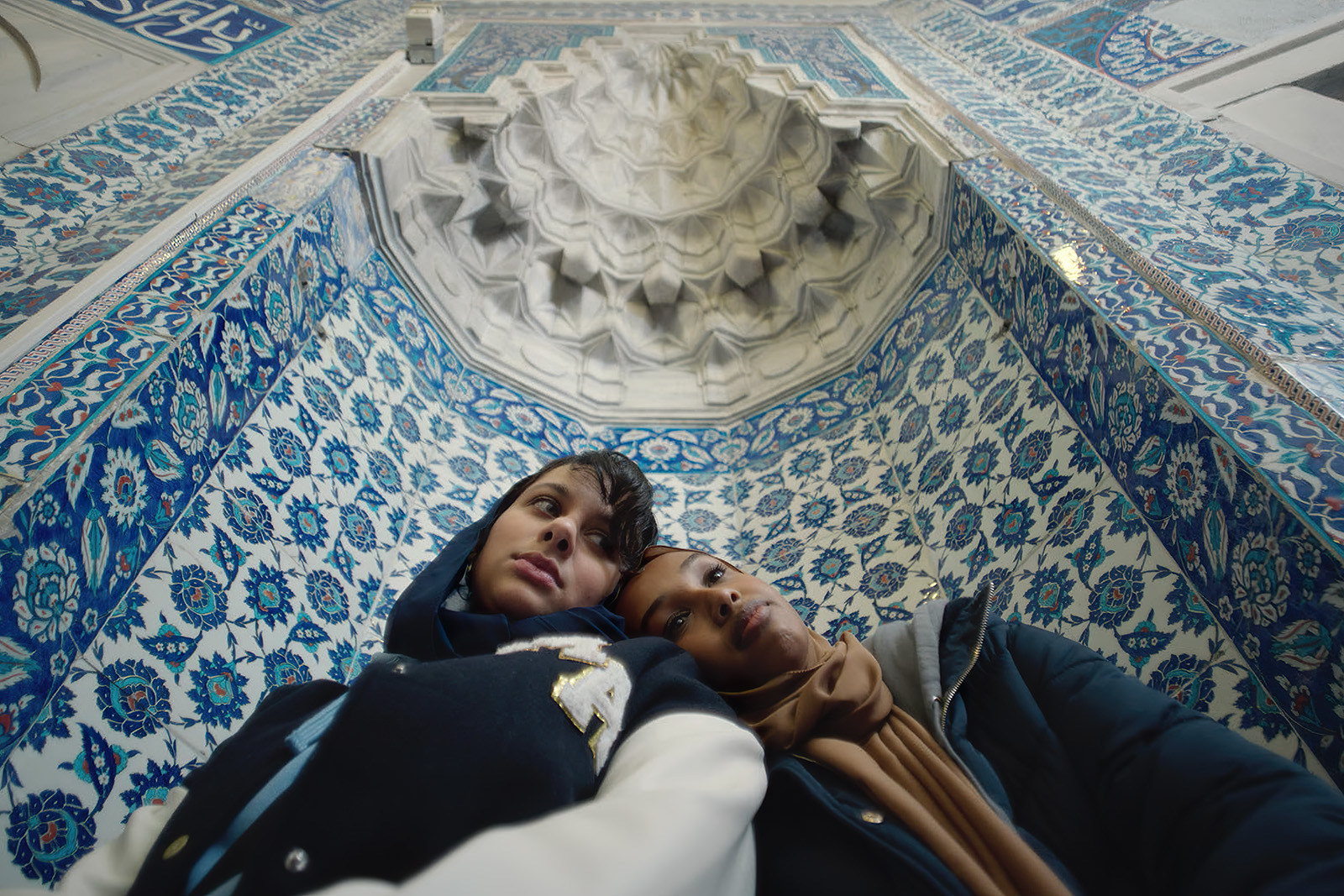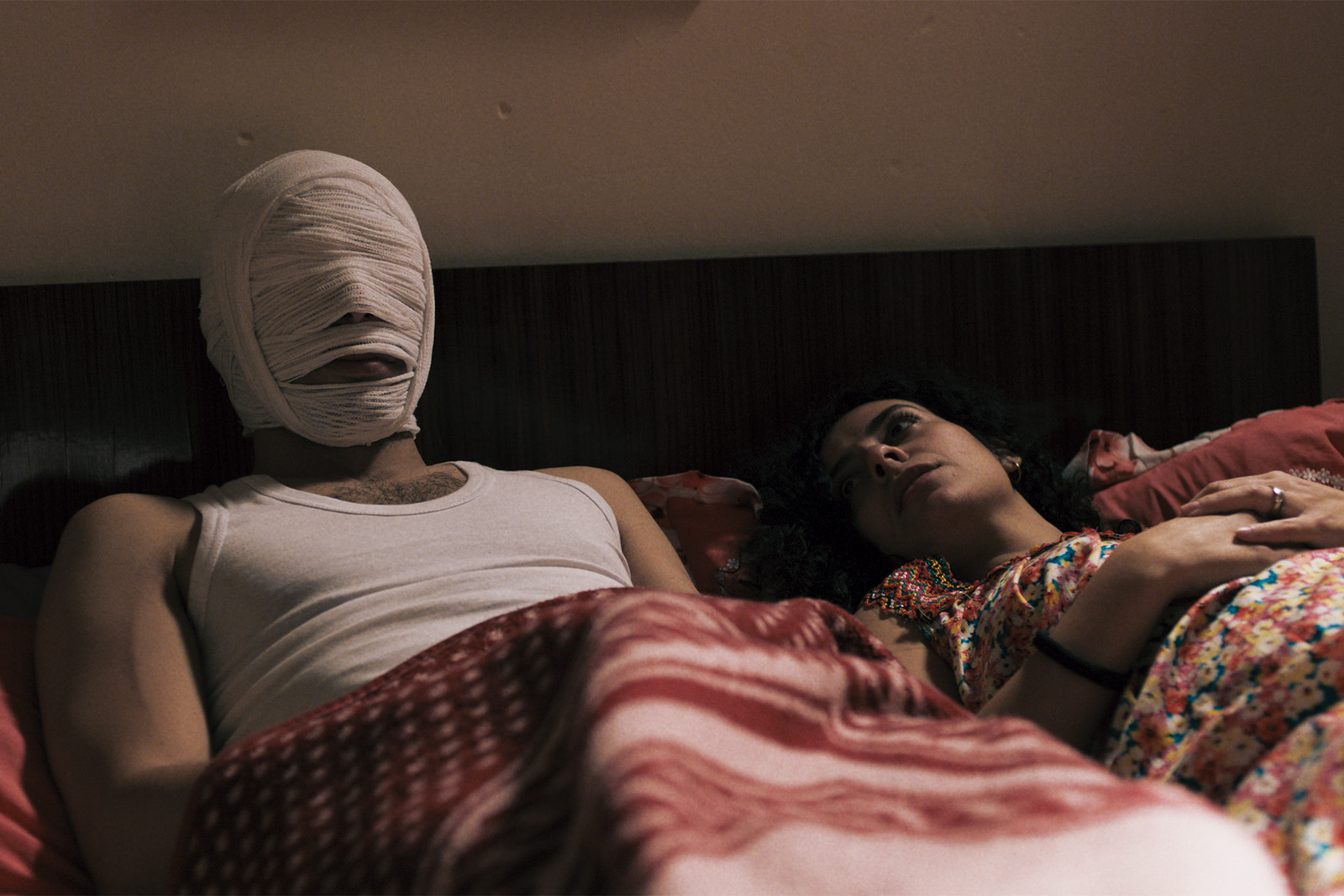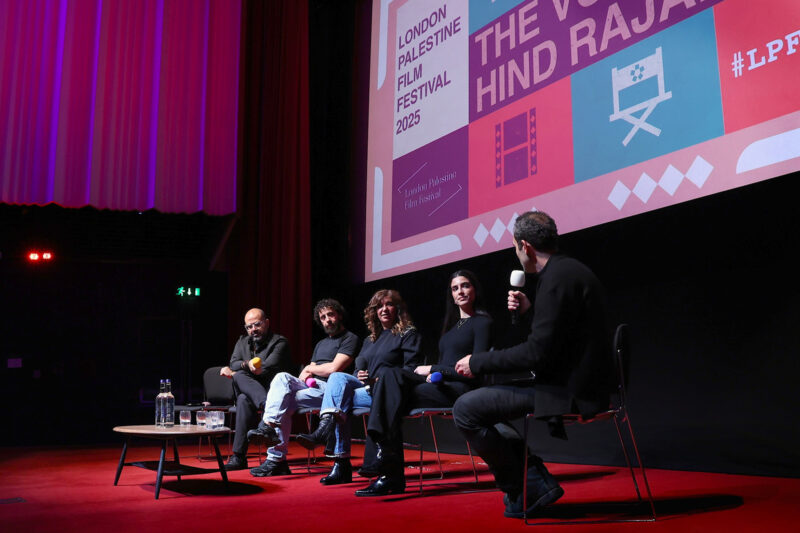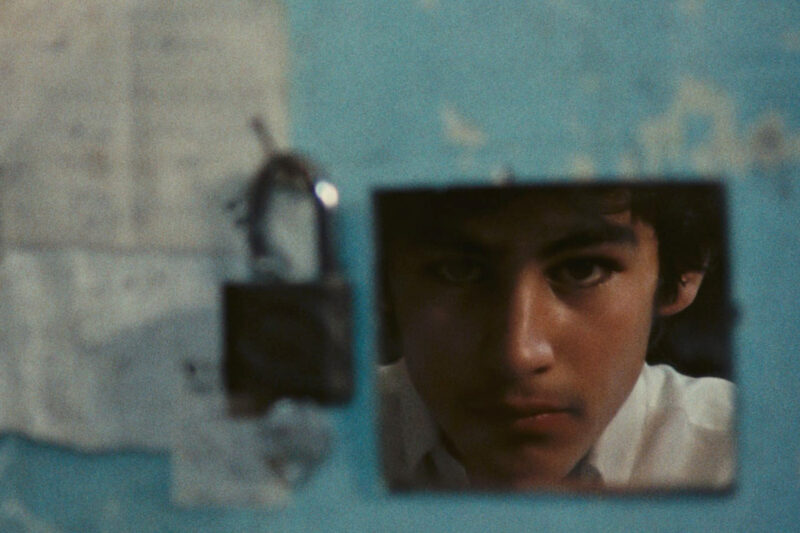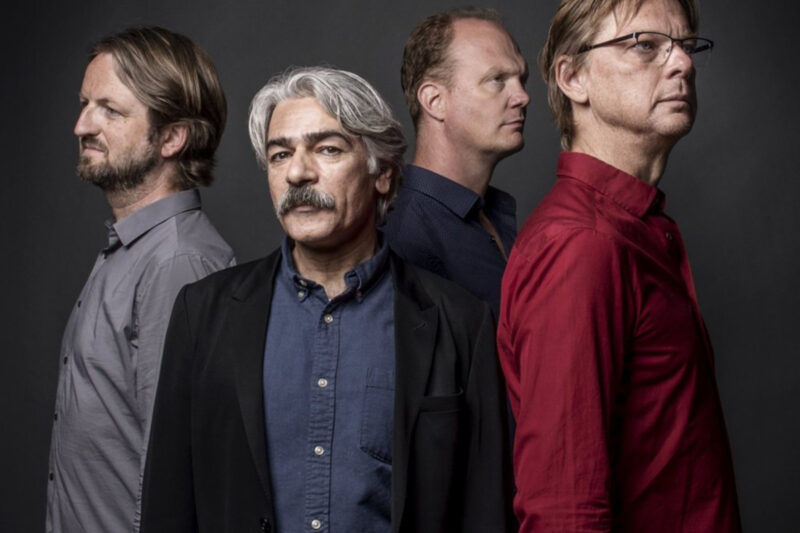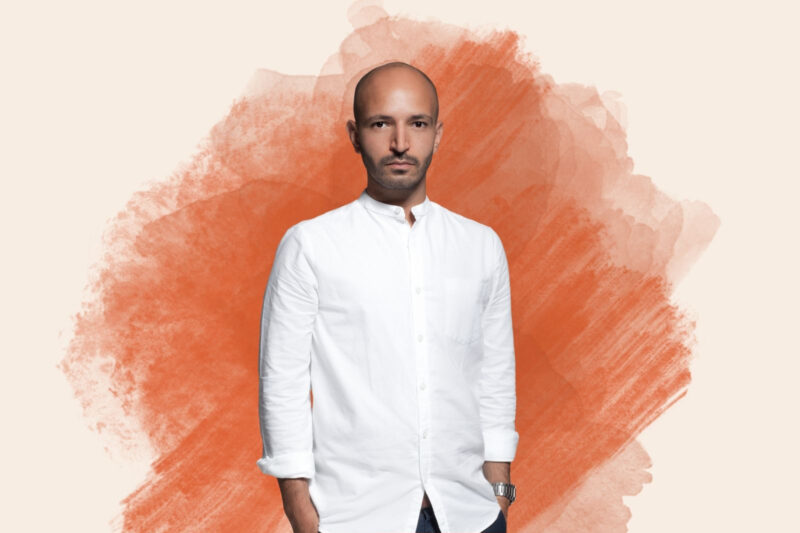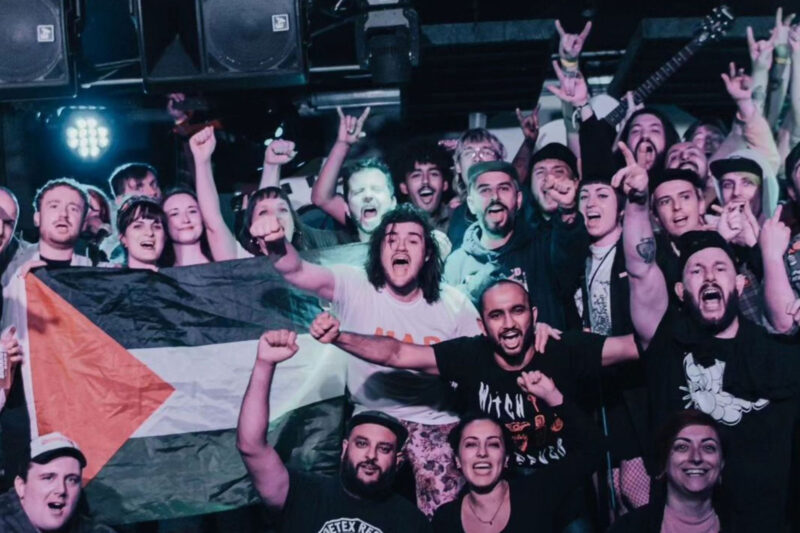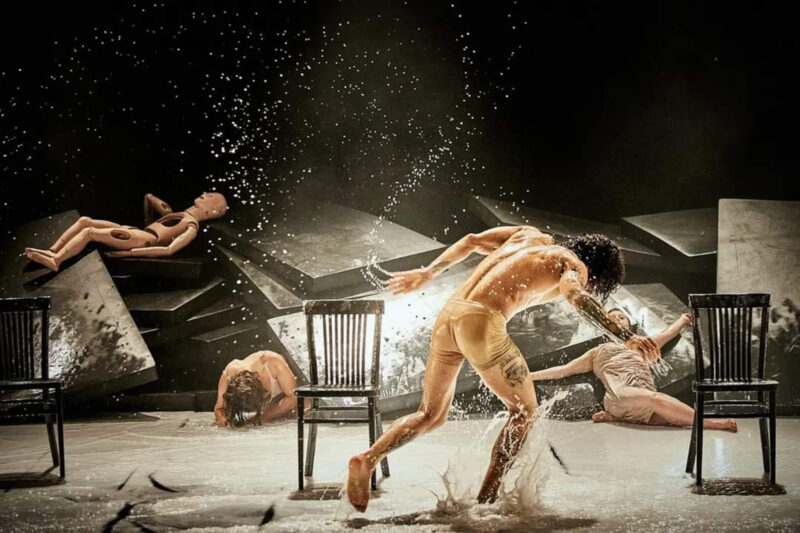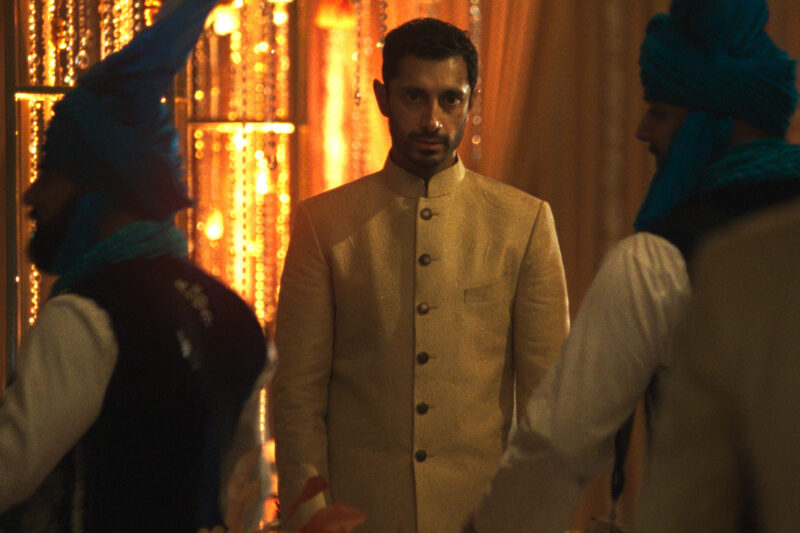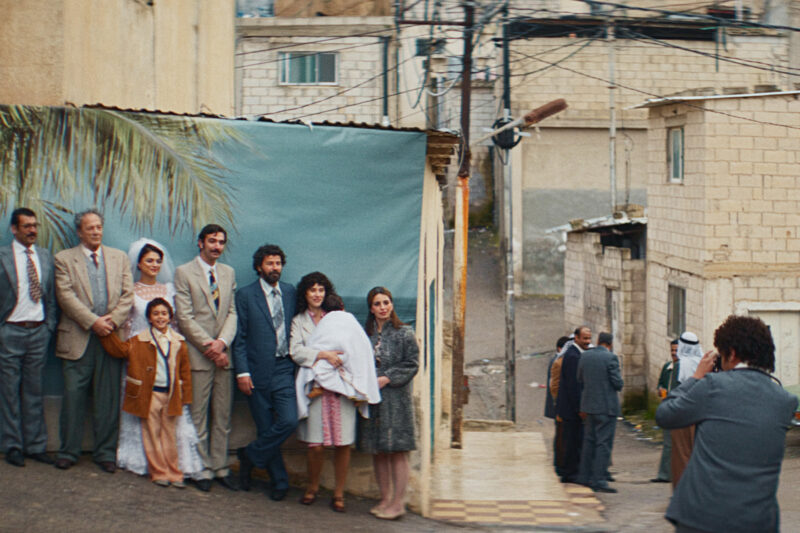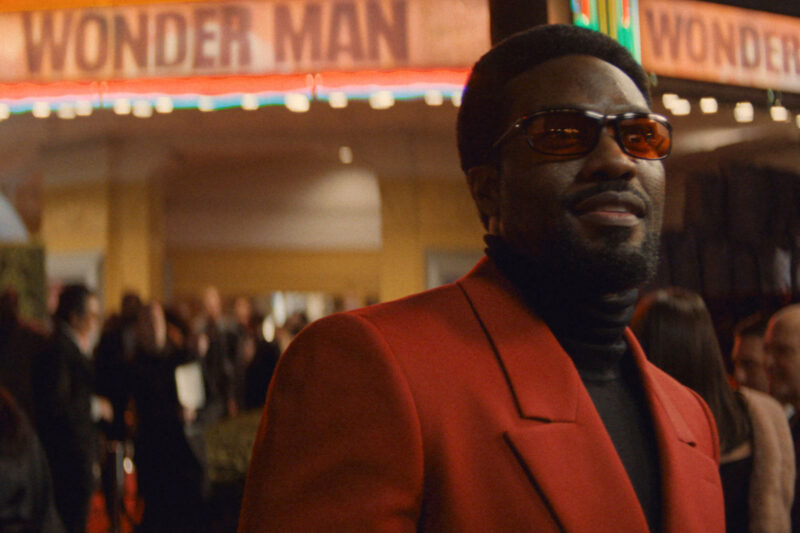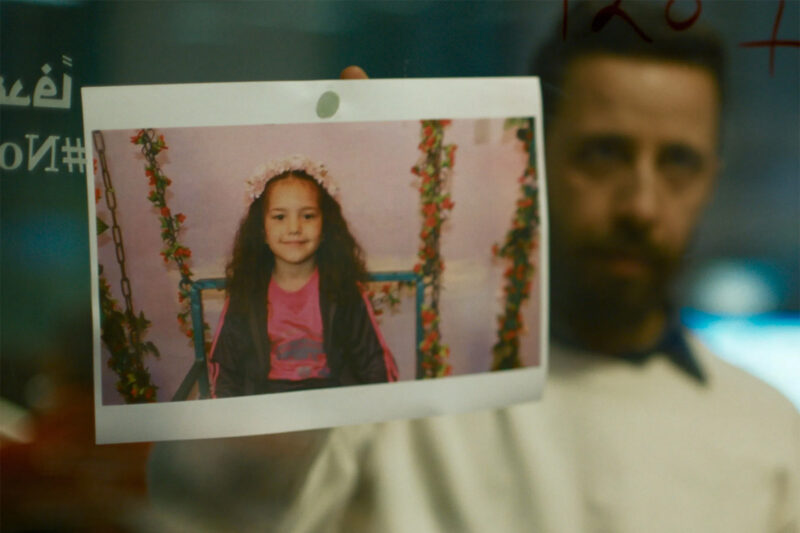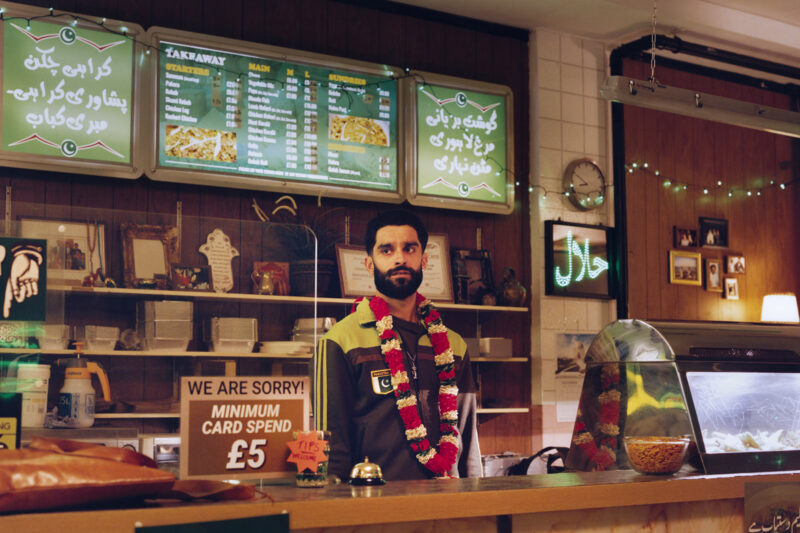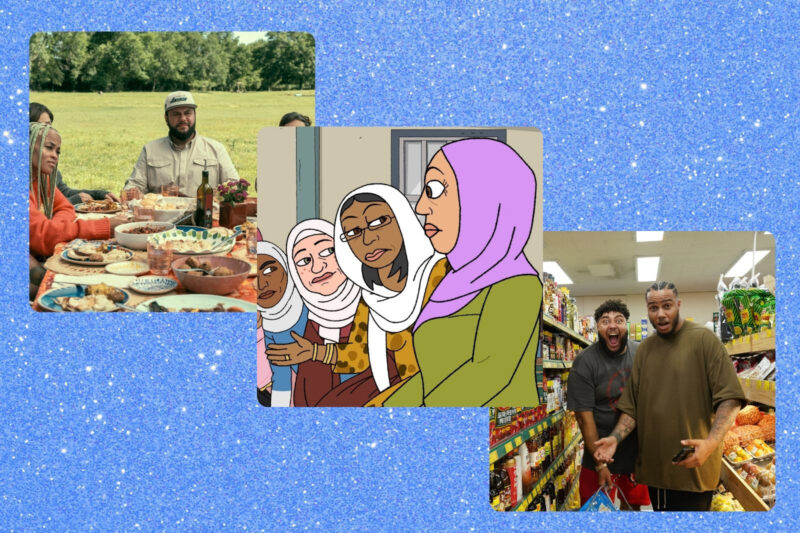Three electric films from Muslim voices at the BFI London film festival
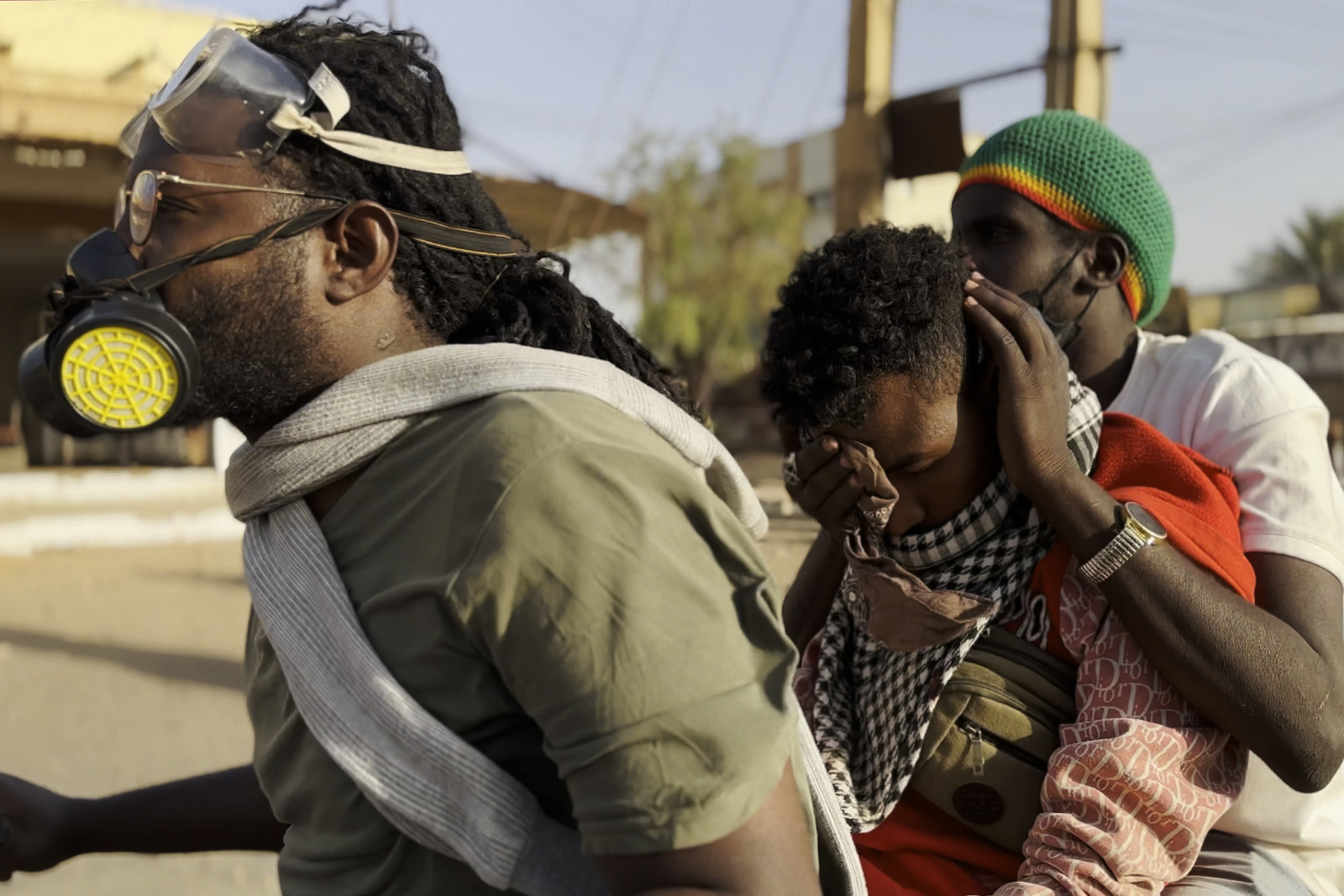
Khartoum, With Hasan in Gaza and Black Rabbit, White Rabbit are works that share a restlessness and refusal to be reduced to headlines or easy archetypes
Coming late in the festival calendar, the BFI London film festival (LFF) doesn’t serve the same purpose as its precursors, Sundance being largely focussed on distribution deals while Venice kicks off awards season. LFF exists as a round-up, bringing us the best of the previous fests. At times, the selection is based on hyperbole, but this year there’s something genuinely electric about the voices of Muslim film-makers.
Three titles stand out: Khartoum, With Hasan in Gaza and Black Rabbit, White Rabbit. They couldn’t be more different in tone or form, yet all share a restlessness and an insistence on not being reduced to headlines or easy archetypes.
Khartoum arrives as both an elegy and an act of defiance. The Sudanese revolution of 2019 briefly made international news, mostly through images of young protesters swarming bridges and squares. Then the cameras left and the country slid back into conflict, with little global interest in the aftermath.
Directors Rawia Alhag, Ibrahim Snoopy, Anas Saeed and Timeea M Ahmed — all Sudanese voices scattered between Sudan and the diaspora — don’t try to offer a clean, singular account of what happened. Instead, they build a mosaic: protest footage shot in fevered handheld, quiet kitchen scenes where families whisper about politics over tea and street murals by women who know their work will be painted over tomorrow.
The result is messy — deliberately so. Khartoum refuses the tidy arc of optimistic uprising followed by devastating failure and, instead, digs into the roots of colonialism. The film’s aesthetic — somewhere between an essay and a love letter — is a testimony to Sudanese colour and sound: bursts of ochre markets, ululations echoing under poetry whispered on the soundtrack. It’s sometimes raw, sometimes ecstatic, often heartbreaking. Crucially, it insists that Sudanese life contains joy and humour alongside grief. For an audience used to seeing Sudan only as a humanitarian horror story, it’s a quietly radical corrective.
Kamal Aljafari’s With Hasan in Gaza works very differently but carries a similar presence. Aljafari has long been cinema’s great archivist of Palestinian memory — his previous films digitally erased soldiers from footage to reclaim Palestinian streets. In his new work, he follows Hasan, an elderly fisherman turned accidental archivist, trying to salvage whatever images he can of Gaza’s past and present. The scraps he collects — damaged film reels, phone videos smuggled through checkpoints — become his fragile act of preservation.
Aljafari lets the images speak: children flying kites under smoky skies, women cooking for families whose homes no longer stand, fishermen reciting poetry by lantern light. In showing daily life, he makes clear how radical it is simply to continue living and remembering under siege. The reels are left imperfect, their scratches and warps visible; the damage is part of the testimony. Watching With Hasan in Gaza is a cumulative experience — at first fragmentary, then overwhelming, until the weight of persistence sinks in. It’s political, yes, but also intimate and strangely tender.
Then there’s Black Rabbit, White Rabbit, which might be the most creatively daring of the three. Shahram Mokri has built a reputation as Iran’s sly cinematic magician, bending time and narrative with mischievous precision. Here, he adapts Nassim Soleimanpour’s cult play — designed to be performed cold, without rehearsal — into a tense, meta-theatrical thriller about censorship and risk. We watch an actor handed a sealed script to read live, line by line, without knowing where the text will go. Each revelation edges closer to danger, each word could breach the invisible red lines of the Iranian state.
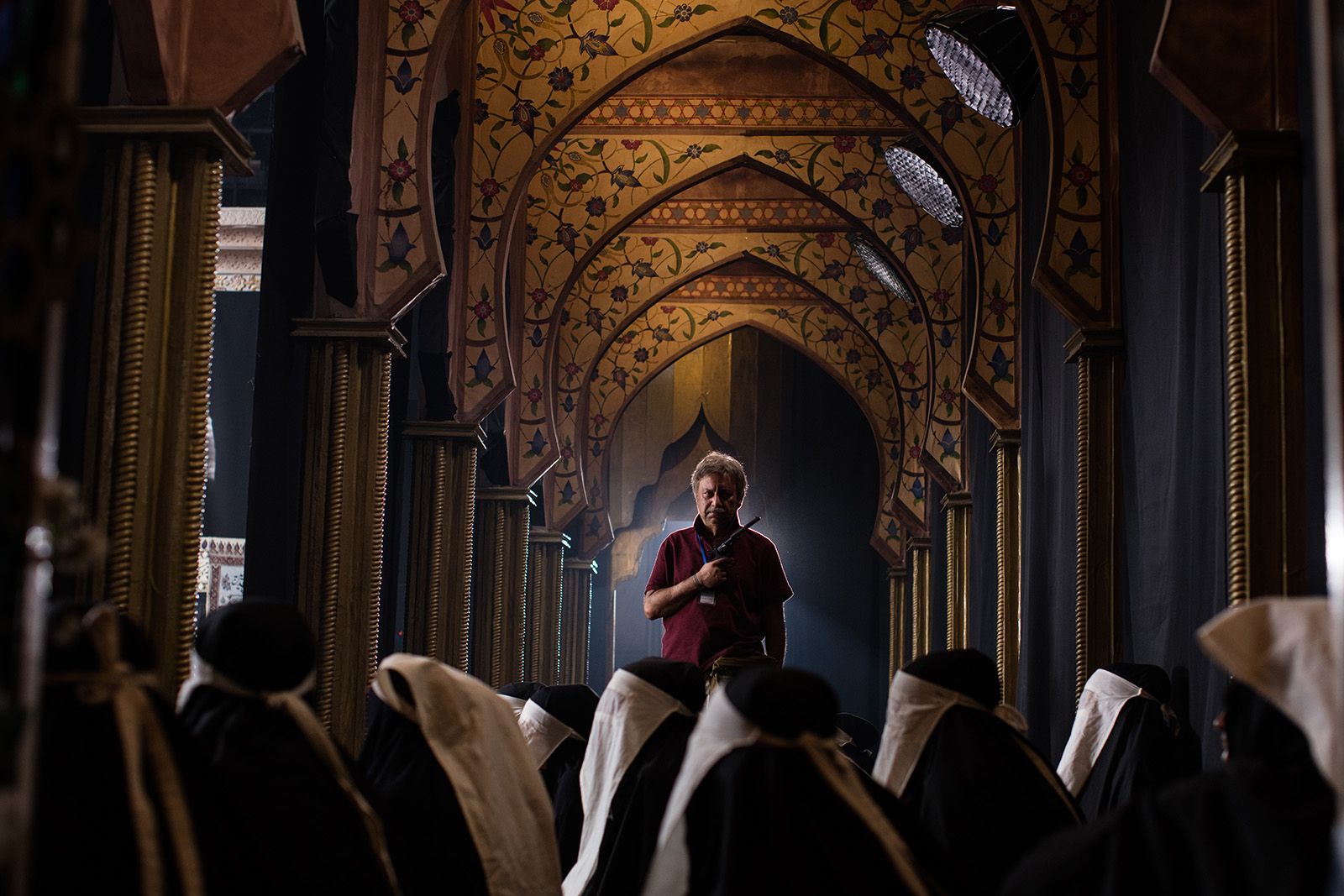
Mokri keeps the premise thrillingly alive by refusing to settle. Long takes snake through theatre corridors, aspect ratios shift, animated flourishes break the fourth wall. The film is cheeky, tense and profoundly anxious all at once. It’s also, in its own way, a love letter to art made under constraint — the survival instinct of the Iranian creative class when every sentence could be scrutinised. While overtly political, it’s never dour. Mokri’s humour keeps the dread nimble and sly.
What unites these wildly different films is a rejection of simplification. Khartoum refuses neat narratives of revolt and collapse. With Hasan in Gaza insists Palestinians exist beyond pity and catastrophe. Black Rabbit, White Rabbit puts us in the room with the artist, feeling the weight of each choice. Together they show Muslim and Middle Eastern filmmaking at its most alive, inventive, angry, mournful and funny.
Culturally, these stories feel timely. Sudan is again on the edge of disaster, but largely invisible in western media. Gaza remains under siege, yet its people are still archiving themselves, trying to preserve their stories and histories. Iranian artists still face suffocating censorship and find new, ingenious ways to speak.
All three films screen as part of the festival’s official selection this October. These are works that expand the idea of what cinema can be beyond stereotype and trauma alone. They offer not just stories but strategies: how to remember when the world wants you forgotten, how to laugh while you resist, how to create when creation itself is a risk.
In a festival full of prestige titles and awards chatter, they remind us why we go to the movies in the first place. It is to witness lives and imaginations we might otherwise never see and to leave the cinema forever changed.
The BFI London film festival takes place 8-19 October at venues across the city.
 Newsletter
Newsletter


